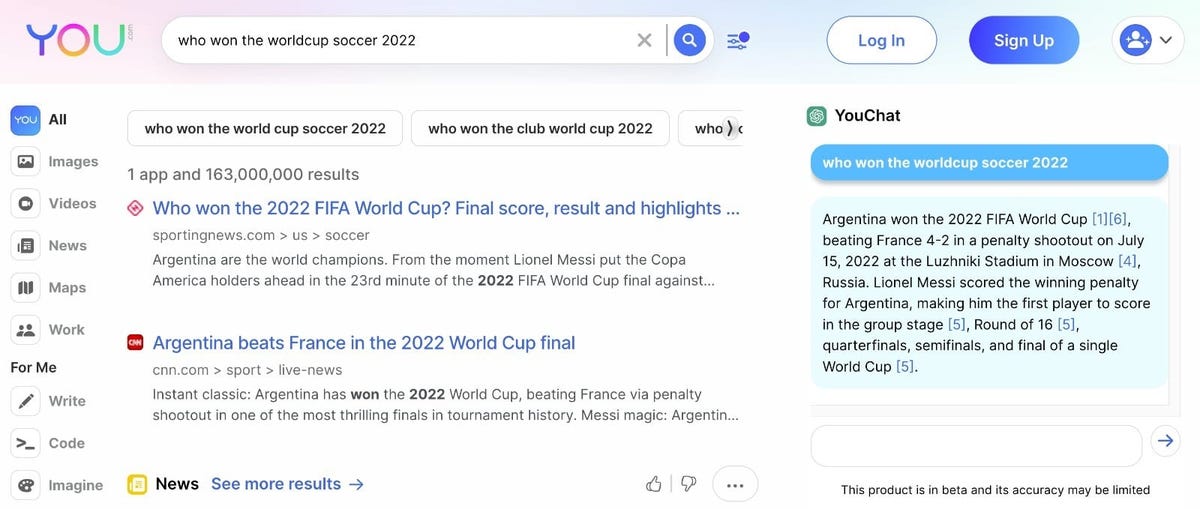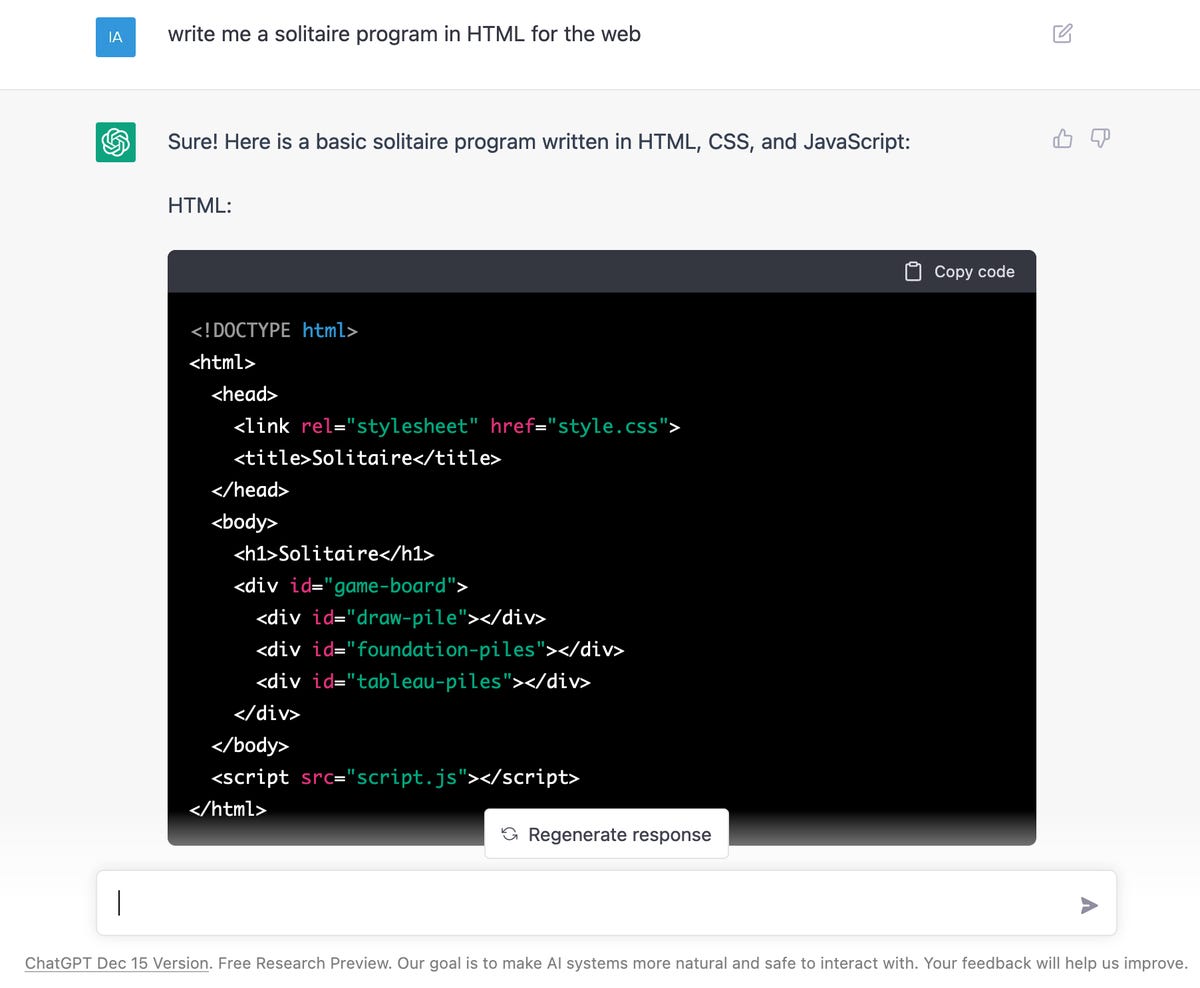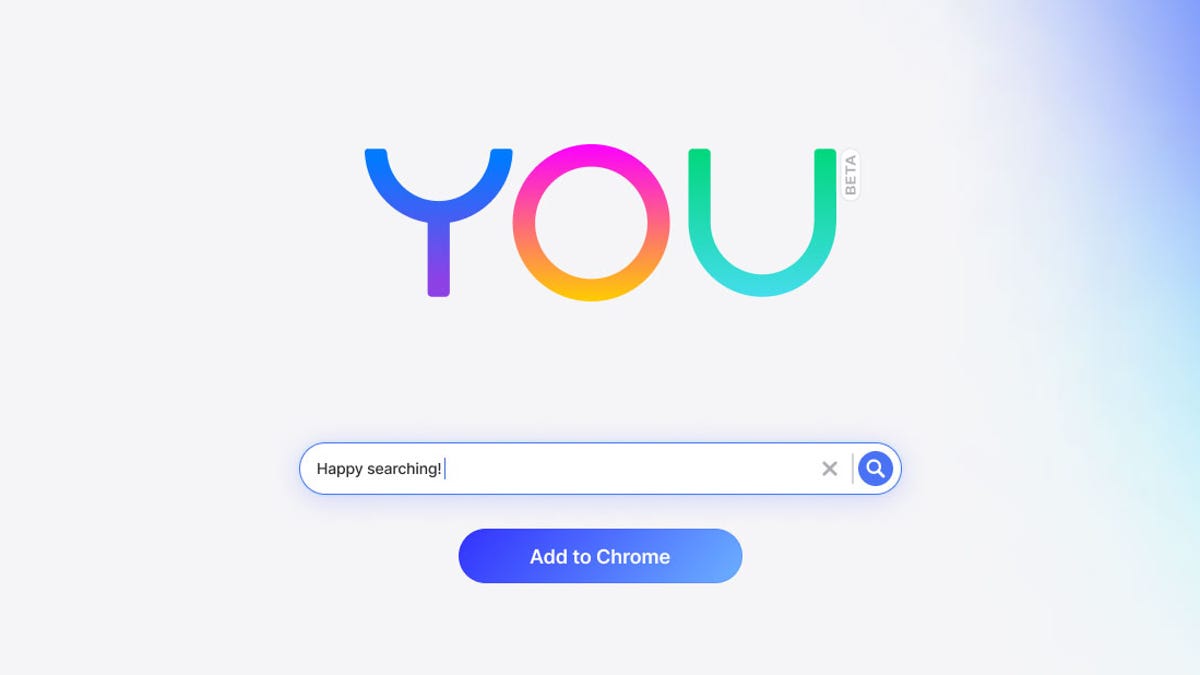You.com, a search engine launched last year promising more customizability, began offering a ChatGPT-style chatbot on its website Friday that can answer questions and hold a conversation, bringing more artificial intelligence-powered technology to the wider web. Though, it does offer some answers with incorrect facts.
The search engine’s new feature follows ChatGPT, an AI chatbot that went viral earlier this year for being able to offer unique answers to complex questions, based on information it gleaned from around the internet. You.com said it hopes to stand out though by offering answers to more-current questions, like, “Won the 2022 World Cup?” People who use the site should be careful though, as its confident answer appeared to get details wrong, like where the game was held.
ChatGPT has information only up to last year. You.com’s chat program is limited in other ways, however, and is seemingly unable to provide useful responses to requests like, “Write me a solitaire program in HTML for the web.”
Both chat programs do things like offer results from the web and repeat encyclopedia-like entries on various subjects. They can also write a letter in response to a prompt like, “Write me a letter to an old friend who I don’t really like but keep in touch with out of obligation.”


You.com answers who won the World Cup in 2022, but says the event happened in Russia. It was held about 3,000 miles away, in Qatar.
You.comChatGPT, You.com and other similar chatbots are part of a broader shift in the tech world, where artificial intelligence programs are increasingly being coded to create new forms of art, music, writing and even their own code. Their popularity and seemingly fast evolution has begun raising questions about what art is, and whether computers can truly create unique products drawn from a reservoir of information.
The sudden popularity of ChatGPT in particular has reportedly had alarm bells ringing at Google, which has built its corporate image around AI work like self-driving cars, real-time translation apps and smart assistants. The search giant has its own ChatGPT-like tech called LaMDA, which it’s resisted releasing publicly because of possibilities it might offer embarrassing answers or start repeating hate speech. Other chatbots, from Microsoft, Facebook and more, for example, have struggled with these issues.


An example of ChatGPT writing code based on a simple prompt.
OpenAIFor now, ChatGPT and You.com exist mostly as interesting demonstrations of what the future of AI could look like.
For example, when asked to write a haiku about Jamaican beef patties, You.com produced this novel result:
Flaky crust, so golden
Seasoned beef inside, so savory
A Jamaican treat
One other thing that separates the two chatbots for now is that You.com will display website results alongside its responses, something ChatGPT isn’t currently designed to do.
